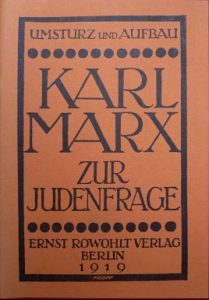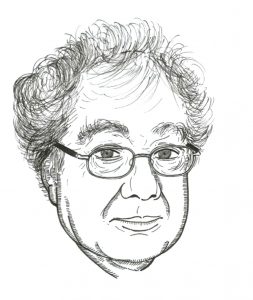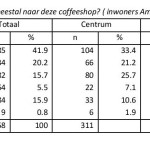Halleh Ghorashi ~ De toekomst van de Westerse democratie en de Civil Society
I Have a Dream… De toekomst van de Westerse democratie en de Civil Society – Lezing Halleh Ghorashi (Bijzonder hoogleraar Management van Diversiteit, VU), Felix Meritis, Amsterdam, 2008.
Enerzijds wordt de Westerse democratie als belangrijk exportproduct gezien door regeringsleiders, anderzijds klinkt zowel internationaal als van binnenuit een steeds luidere kritiek op de Westerse democratie.
De afgelopen jaren wordt het belang van de civil society in onze samenleving als wezenlijk geacht. Democratie is veel meer dan de vrijheid om je stem te mogen uitbrengen. In tegenstelling tot wat vaak wordt beweerd, gaat het bij democratie niet alleen om de meerderheid, maar vooral om de ruimte voor de minderheid. En deze is juist wat democratie kwetsbaar maakt, hoe maak je ruimte voor de ander, wanneer je die ander als bedreiging van democratie beschouwt?
Kishore Mahbubani ~ The Century Of Asia: The Inevitable Global Power Shift
Kishore Mahbubani: ‘You in the West have no idea how the rest of the world looks at you. They see an emperor without clothes. The world has changed
tremendously, but you do not understand what that means. Globalisation Lecture 23: The Century of Asia: The inevitable global power shift, Felix Meritis, Amsterdam, 13-11- 2008.
For centuries Asians (Chinese, Indians, Muslims and others) were on the sidelines of world history. But the East is rapidly modernizing and is ready to claim their share of world power. They are among the fastest growing economies and have some of the largest financial reserves. On a social and cultural level the East is changing fast. How do Europe and the US respond to the rapid rise of the East? According to Singaporean intellectual Kishore Mahbubani, the Western business world appears to be the only one anticipating changes in the East. Western governments seem to be looking the other way and fail to accept that a shift in economic power will also mean a shift in political and cultural power.
Internationalisation Of The Arts And Culture Calls For A New Approach
Spring 2006
The international activities of arts institutions are attracting more and more attention. The simplest foreign activity of an arts institution may consist of the artist of artistic company performing abroad, either on their own initiative or upon request. More and more companies, whether large or small, are increasingly being asked to perform at festivals or other events. The fact that this is gradually becoming common practice fits in with the disappearance of every possible barrier to international exchange. There is probably virtually no arts institution which never performs abroad at some time. Of course, there are all kinds of similar phenomena in the opposite direction.
There are special agencies which manage this import and export. Large or small, they are the middlemen between supply and demand, between presenters and producers, or between presenters and presenters. It thus frequently happens that presenters from various countries engage themselves for tours organised by such agencies.
The state of affairs outlined above is not really much more than a simple question of import and export. Strictly speaking, there is no need for the company concerned to do anything besides preparing its performance. The work is primarily aimed at the domestic market. A text or script may occasionally get translated, but generally speaking no effort is required apart from the effort needed to be taken seriously in one’s own country. Besides, regular performances abroad are no automatic guarantee that the company itself makes closer or more artistic international contacts. The most that can be expected is that more markets are opened up for the product supplied by the company, but it is highly questionable whether – and if so, to what extent – the product, the company or the artist are influenced by a different artistic orientation or confrontation.
This kind of cultural exchange will be almost entirely disregarded in a more detailed consideration of the concept of ‘internationalisation’. After all, one may assume that these activities across national borders are a part of the ordinary day-to-day activities of an arts institution.
A dialogue requires modesty
Before an exchange, tour, series of lectures or exhibition abroad comes up for discussion, the first question that has to be answered is whether the foreigners concerned are interested in it: “Do they want it? Are we obliging anyone with it?” Before these questions can be answered, it is first necessary to find out who “they” are. Minimal requirements in this respect are: being able to speak the language of the host country; being familiar with its forms of behaviour and peculiarities; and gauging the interests of both sides by means of personal conversations.
Information can only be transferred after getting to know one another on a personal level, and it should be carried out between the parties themselves: the art gallery owner and the painter, the theatre and the mime company, etc. This demands a thorough and up-to-date knowledge of the entire range of the arts available, both in the home country and abroad. As far as the performing arts are concerned, it is virtually impossible for an ordinary person to keep up with the developments of the past twenty years. It is hardly possible any longer for a local organisation to collect the information required to operate as an international orientation point as well.
People will have to respond to issues relating to the arts, cultural policy and production which arise elsewhere in Europe as well. International cooperation is essential if artists are to continue to have the opportunity to create, perform and innovate. Read more
Blauwdruk Europa ~ Interview met Alicja Gescinksa
Filosoof Alicja Gescinksa houdt een vurig pleidooi voor meer moraal in het openbare discours. We kunnen niet zonder moraal in het gesprek en moeten duidelijk zijn over welke waarden we willen uitdragen, zoals de ander erkennen, geïnspireerd zijn door verschillende culturen, en solidariteit creëren. Het is geen statisch gegeven, maar een eeuwigdurend proces: vrijheid moet je elke dag opnieuw veroveren. Erkenning van de wisselwerking tussen
verschillende landen, erfgoed e.d. is noodzakelijk, evenals een politieke vertaalslag. We hebben de EU nodig als overkoepelend orgaan, maar moeten wel sceptisch blijven kijken naar haar functioneren.
Geschinska heeft zelf een migrantenachtergrond, en moest leren loyaal te zijn in haar nieuwe land België. “Maar als je niet weet waar je vandaan komt, weet je niet waar je naar toe gaat.”
Blauwdruk Europa – Alicja Gescinska, interview Linda Bouws – 23 april 2013
Critique Of Heaven And Earth Equality ~ Religion And Political Emancipation According To Karl Marx
 Introduction
Introduction
Both left-wing and right-wing parties and movements claim to defend Western Values while demonstrating against Islam or against Islamophobia and Populism. From both sides we hear words like Liberty and Equality. Both sides are pointing to the Enlightenment as the core of European Values. When defending ‘European Civilisation’, everyone points to the French Revolution and its Manifesto, the Declaration of Human Rights. The French struggle against privilege, for equal political rights was the start of the political emancipation of the citizens that after 1789 spread all over Europe.
I think we all agree that the legacy of the French Revolution is worth to be defended, but there is a new struggle going on about its Interpretation: do the European Values come in a ready-made package, to be accepted and implemented by the whole world or at least by everyone coming to Europe? Or is the French Revolution still an unfinished business and do we still have to struggle for the realisation of equality and liberty in our societies? I would like to show you why I am of the opinion that the latter is the case, by looking more closely into the heritage of this project for liberty and equality from the 18th century.
I will do so, using a text of the German thinker Karl Marx. (Trier, 5 may 1818 – Londen, 14 march 1883) He is mainly known for his economical ideas about Capital and Labour, but his political texts are in no means less insightful.
If you want to know how equal and free a society is, it is always a good idea to look at the rights of those who are looked upon as ‘different’ from everybody else. Those who claim equal treatment because they are being discriminated against. Marx does exactly this. He addresses an issue that was debated fiercely during the 19th century, just like it is today. I am talking about the relation between State and Religion. Back then the big issue was the position of Jews in society. The state was not secular, but Christian, and Jews were second-class citizens with less rights than our minorities have now. Things are different today, but we can still recognize the questions of the 19th century: does Jews have to renounce their religion in order to obtain full citizenship? Are Jews a threat to society because of their different customs and religious practices? Today, we would never pose these questions in relation to Jews. But they are openly discussed in relation to Muslims.
Marx, of Jewish origin himself, intervenes in 1843 in the debate, publishing the essay Zur Judenfrage. On the Jewish Question, is written 24 years before Capital. In this text, he laid a fundament for his later work. The text is a polemic reaction to an earlier article called Jewish Question from Bruno Bauer, who belonged to the same philosophical-political group as Marx, the Hegelians.
His first point, which is crucial, is a change of perspective: while discussing the Jewish Question, do not look at the behaviour and aspirations of the Jews, but look at the role of the State. Marx uses the Jewish Question to analyse the mechanism of political emancipation in a modern society. In this endeavour, the criticism of religion is the condition of a criticism of politics.
Criticism of religion: what religion and political emancipation have in common
What are we talking about? We are talking about human rights. We have to realise that the original Declaration from 1789 was called Declaration of the rights of Man and of the Citizen (French: Déclaration des droits de l’homme et du citoyen) In 1948, when the UN adopted the Declaration it became the Universal Declaration of Human Rights. The Citizen disappeared.
That is striking, since the core of the analysis by Marx lies in the difference between ‘Man’ and Citizen’. In his words, between emancipation as such and political emancipation. By letting the Man and the Citizen fuse into the Human, an essential procedure of political emancipation is covered up. Who is this ‘Man’ in the Declaration?
Niemand anders als das Mitglied der bürgerlichen Gesellschaft. Warum wird das Mitglied der bürgerlichen Gesellschaft ‘Mensch’, Mensch schlechthin, warum werden seine Rechte Menschenrechte genannt? Woraus erklären wir dies Faktum? Aus dem Verhältnis des politischen Staats zur bürgerlichen Gesellschaft, aus dem Wesen der politischen Emanzipation. (p.363-364)
Read more
Felix Meritis 2003 ~ Georgische week ~ Repetitie Supra!
In 2003 vond in Felix Meritis de Georgische week plaats, een uitwisselingsprogramma tussen Nederland en Georgië.
Onderdeel was de voorstelling Supra!, een co-productie van Ferrie de Geus & Noortje Bijvoets met dansers van de wereldberoemde volksdansschool in Kutaisi en acteurs van het Kutaisi Drama Theatre.



